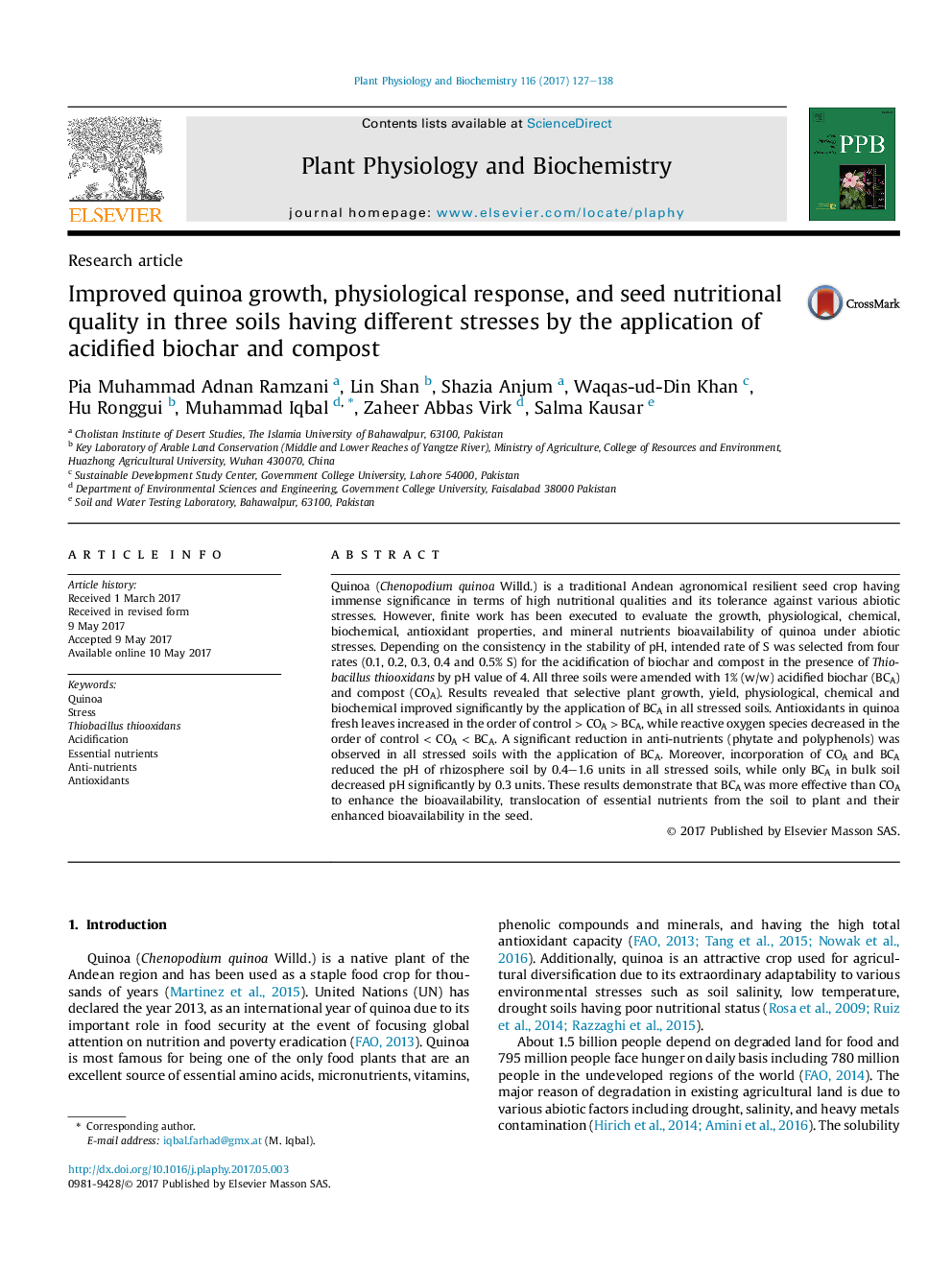| کد مقاله | کد نشریه | سال انتشار | مقاله انگلیسی | نسخه تمام متن |
|---|---|---|---|---|
| 5515361 | 1541905 | 2017 | 12 صفحه PDF | دانلود رایگان |
- ROS were produced in quinoa plant when grown on drought, salt-affected and Ni-contaminated soils.
- Acidified biochar and compost improved antioxidant defense machinery in quinoa plant.
- Quinoa biochemical parameters were significantly enhanced with acidified biochar.
- Acidified biochar significantly enhanced the uptake of nutrients in quinoa plant.
- Phytate/nutrients molar ratios in quinoa seed decreased with acidified biochar.
Quinoa (Chenopodium quinoa Willd.) is a traditional Andean agronomical resilient seed crop having immense significance in terms of high nutritional qualities and its tolerance against various abiotic stresses. However, finite work has been executed to evaluate the growth, physiological, chemical, biochemical, antioxidant properties, and mineral nutrients bioavailability of quinoa under abiotic stresses. Depending on the consistency in the stability of pH, intended rate of S was selected from four rates (0.1, 0.2, 0.3, 0.4 and 0.5% S) for the acidification of biochar and compost in the presence of Thiobacillus thiooxidans by pH value of 4. All three soils were amended with 1% (w/w) acidified biochar (BCA) and compost (COA). Results revealed that selective plant growth, yield, physiological, chemical and biochemical improved significantly by the application of BCA in all stressed soils. Antioxidants in quinoa fresh leaves increased in the order of control > COA > BCA, while reactive oxygen species decreased in the order of control < COA < BCA. A significant reduction in anti-nutrients (phytate and polyphenols) was observed in all stressed soils with the application of BCA. Moreover, incorporation of COA and BCA reduced the pH of rhizosphere soil by 0.4-1.6 units in all stressed soils, while only BCA in bulk soil decreased pH significantly by 0.3 units. These results demonstrate that BCA was more effective than COA to enhance the bioavailability, translocation of essential nutrients from the soil to plant and their enhanced bioavailability in the seed.
Journal: Plant Physiology and Biochemistry - Volume 116, July 2017, Pages 127-138
